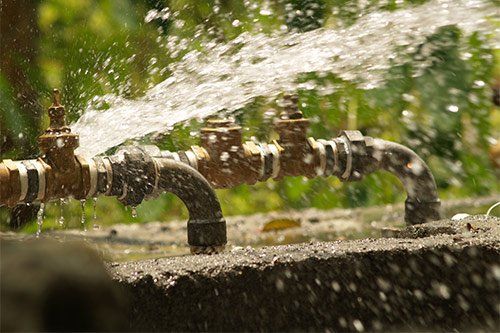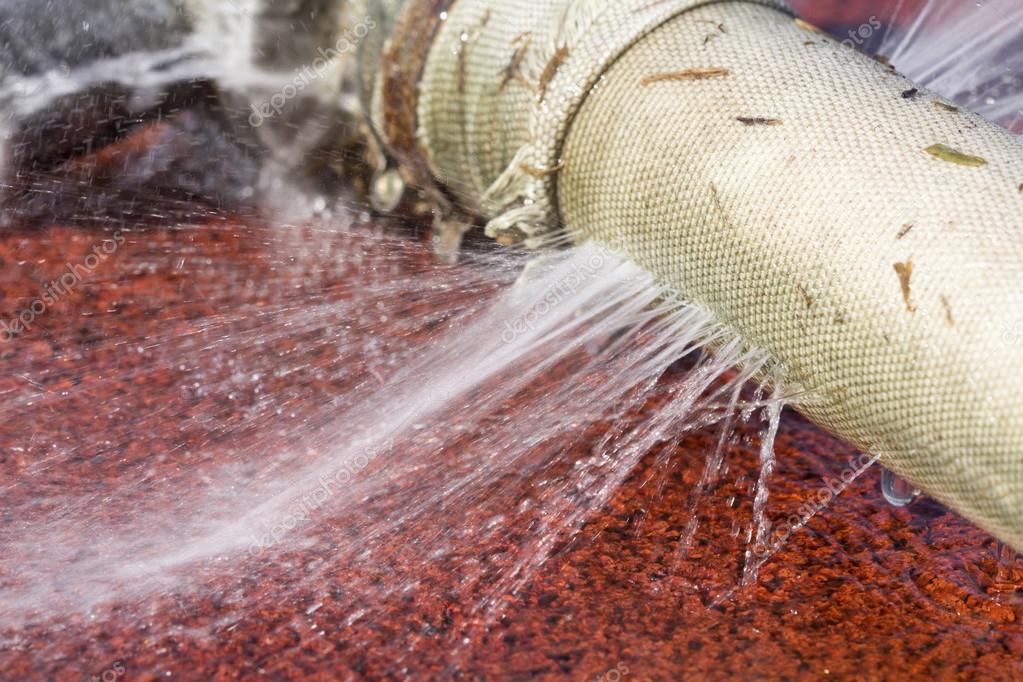This great article listed below pertaining to Common Causes of Water Leaks in the Home is incredibly compelling. Don't miss it.

"Beware of little expenses. A small leakage will certainly sink a great ship." - Benjamin Franklin.
He couldn't have actually been extra appropriate since water leaks in our homes cause a waste of sources, increasing our water bills. Although this rise may seem negligible in the beginning, it can bring about considerable expenditures that can break your bank. In addition to a boost in costs, water leaks also trigger undesirable natural growth, architectural damages, and also electric threats.
Figuring out if you have a water leakage isn't constantly simple because of being not able to see the majority of the pipework in your home. If you have had an increase in your water expenses lately, discovered water spots on ceilings and walls, smelt poor odor, and so on. You may want to take into consideration asking for plumbing solutions to get it looked into.
There are numerous root causes of water leaks, and we have actually compiled the common reasons below. Examine to see if you have actually had related problems in your house just recently.
Obstructed drains pipes
Food bits, dust, and grease can cause stopped up drains and also block the flow of water in and out of your sink. If undealt with, boosted pressure within the gutters can create an overflow and finish up splitting or breaking pipelines. To avoid blocked drains pipes in your house, we advise you to avoid pouring bits away and also regular cleaning of sinks.
High water pressure
You observed your house water stress is more than common yet after that, why should you care? It runs out your control.
It would be best if you cared because your typical water pressure ought to be 60 Psi (per square inch) as well as although your house's plumbing system is designed to endure 80 Psi. An increase in water stress can put a stress on your home pipelines as well as bring about fractures, or even worse, ruptured pipes. Get in touch with an expert concerning regulating it if you ever discover that your house water stress is greater than normal.
Deterioration
As your pipework gets older, it gets weaker and more vulnerable to rust after the frequent flow of water via them, which can gnaw at pipes and also create cracks. A noticeable sign of corrosion in your house plumbing system is staining and also although this might be hard to spot as a result of many pipes hidden away. Once they are old to guarantee a sound plumbing system, we suggest doing a constant appointment every few years and also change pipelines
Weakened pipeline joints
Pipe joints are the parts of our plumbing system where the pipelines connect. They are the weakest point of our plumbing system. Therefore, they are much more prone to deterioration. It is important to note that although pipelines are made to withstand stress and also last for some time, they weren't made to last for life; therefore, they would deteriorate over time. This deterioration might cause fractures in plumbing systems. A typical sign of damaged pipeline joints is extreme noise from taps.
Damaged seals
An additional source of water leakages in residences is damaged seals of residence devices that make use of water, e.g., a dishwasher. When such devices are mounted, seals are installed around water adapters for very easy flow of water via the equipment. Thus, a broken seal can create leak of water when in use.
With little or no expertise of plumbing, understanding your residence's plumbing system adequate to fix some of these issues (without effect) can be an inconvenience. Contact plumbing experts in Pittsburgh, Providence, Rochester, as well as environ today, as well as they'll make those problems disappear.
He couldn't have actually been a lot more best because water leakages in our houses result in a waste of sources, increasing our water costs. If you have had a boost in your water bills recently, noticed water discolorations on walls and also ceilings, scented lousy smell, and so on. A rise in water pressure can put a pressure on your home pipes as well as lead to cracks, or worse, burst pipes. One more reason of water leakages in residences is damaged seals of residence appliances that use water, e.g., a dish washer. When such devices are mounted, seals are mounted around water adapters for very easy passage of water with the maker.
5 TIPS IN DETECTING A WATER LEAK IN YOUR HOUSE
Water leaks can be hard to find in your home, yet they can be so common. We rely on water every day in our home, which is why a leak can cause big problems. By detecting them early, you can save money and further damage, getting the problem fixed as soon as possible. Here are 5 tips to help you detect a water leak in your home, so you can contact a plumber straight away and get the issue sorted.
Check your water meter
Many people underestimate the value of the water meter in their home. It can be one of the best ways to tell if you have a leak early on, so you can get on top of it before issues start arising. Start by turning off all the water in your home: taps, washing machine, dishwasher, etc. Now take a look at the meter – if it’s still changing with everything turned off, it’s likely you have a fast-flowing leak that you need to get on top of straight away. If nothing changes, then leave your meter for an hour or two and come back to it. Did it change in this time? It’s likely you have a slower leak, which isn’t as urgent but still handy to get fixed so it doesn’t become a bigger problem.
Keep an eye on your bill
Another good way to detect a leak in your home is by keeping an eye on your water bill. It helps if you have a past bill from the same period of time. You can compare like for like and determine whether your water usage has increased significantly. If it has, there may be a leak in your system that you haven’t picked up before. A professional plumber can check through all of your pipes and determine where it is coming from.
Look for damage
If you have a leak inside your home, you will notice damage over time. Take a look at your showers and bathtubs and note whether any of the tiles surrounding the area seem to be discoloured or damaged in any way. There may be water stains, mould or peeling material that has resulted from a build up of moisture over time. Make sure you take a look under sinks at the back of cupboards that don’t get accessed regularly. This is where damage can go unnoticed and build up over periods of time.

I was made aware of that write-up on Reasons for Water Heater Leaks through an associate on our other website. For those who enjoyed our article kindly make sure you remember to pass it around. I am grateful for your time. Visit again soon.
Connect for clarity.